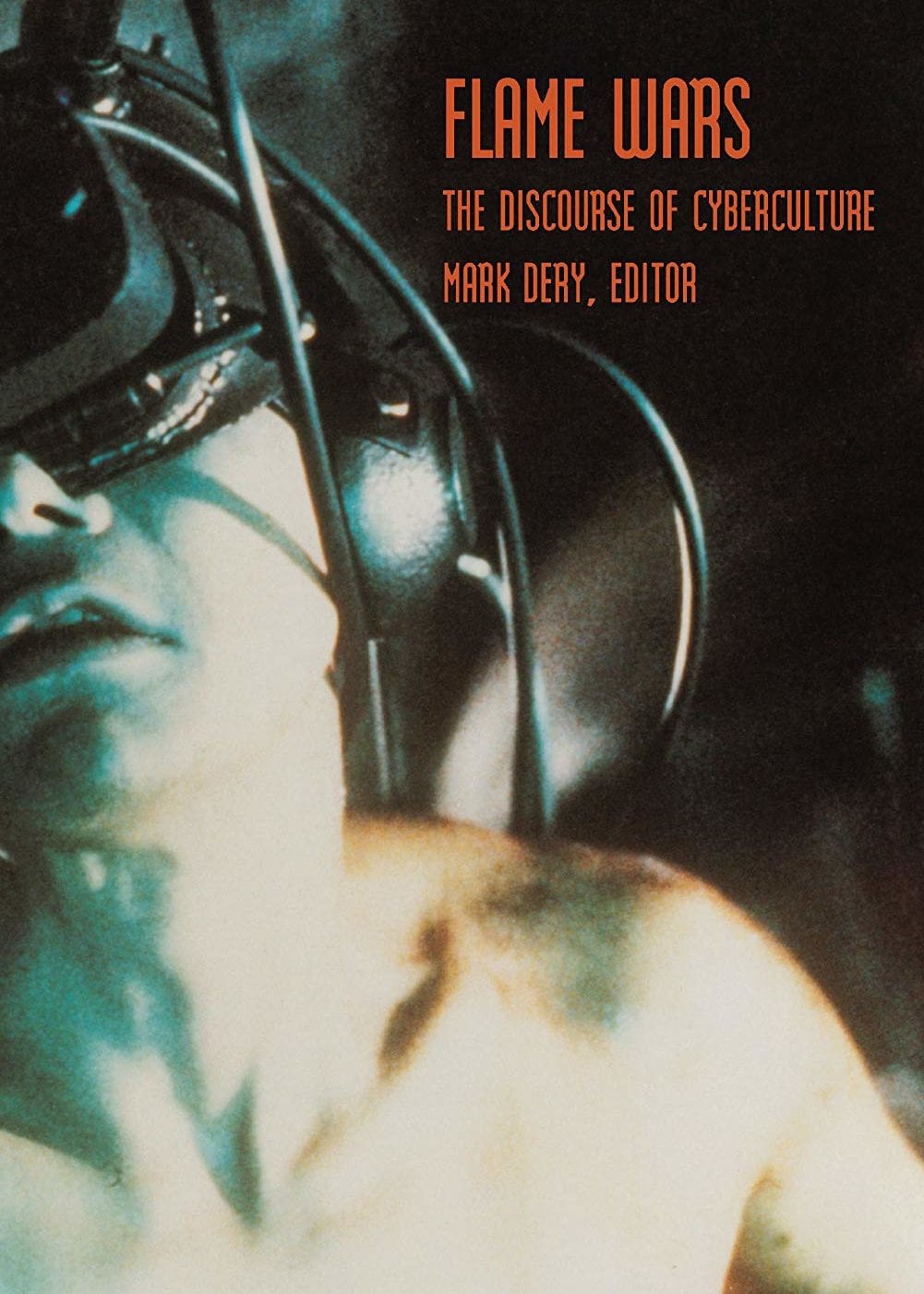Jacket Description:
“Flame Wars,” the verbal firefights that take place between disembodied combatants on electronic bulletin boards, remind us that our interaction with the world is increasingly mediated by computers. Bit by digital bit, we are being ‘Borged,’ as devotees of Star Trek: The Next Generation would have it–transformed into cyborgian hybrids of technology and biology through our ever more frequent interaction with machines, or with one another through technological interfaces.
The subcultural practices of the ‘incurably informed,’ to borrow the cyberpunk novelist Pat Cadigan’s coinage, offer a precognitive glimpse of mainstream culture in the near future, when many of us will be part-time residents in virtual communities. Yet, as the essays in this expanded edition of a special issue of the South Atlantic Quarterly confirm, there is more to fringe computer culture than cyberspace. Within these pages, readers will encounter flame warriors; new age mutant ninja hackers; technopagans for whom the computer is an occult engine; and William Gibson’s “Agrippa,” a short story on software that can only be read once because it gobbles itself up as soon as the last page is reached. Here, too, is Lady El, an African American cleaning woman reincarnated as an all-powerful cyborg; devotees of on-line swinging, or “compu-sex”; the teleoperated weaponry and amok robots of the mechanical performance art group, Survival Research Laboratories; an interview with Samuel Delany, and more.
Rallying around Fredric Jameson’s call for a cognitive cartography that “seeks to endow the individual subject with some new heightened sense of place in the global system,” the contributors to Flame Wars have sketched a corner of that map, an outline for a wiring diagram of a terminally wired world.
Press for Flame Wars:
“This book is crucial reading; it will change how you view the future.” –Wired
“Like it or not, we are becoming a culture more and more entwined in new electronic media. To be a well-informed and culturally aware person means you need to start thinking about how our society relates to these media. Flame Wars is a great place to start.” –The Whole Earth Review
“Not for intellectual weenies, Flame Wars is sure to provide some fire for the next flame war you get into on alt.cyberpunk.” – Wave
“Most [cybercrit] is pure hype. Flame Wars is different. Flame Wars is better. Flame Wars is like jacking into the heart of microprocessor darkness itself, like online surfing the Net Edge of the postmodern tidal wave. . . . Let the flame wars burn.”–Andrew Leonard, The Bay Guardian
“[C]onsistently smart and bold in its analysis. . . . [I]t will make you conscious of the many assumptions you bring to understanding this new cultural space, as well as make you aware of the complex of ideas that have combined in the making of a more general cyberculture.” – Don Palm, H-Net Book Review
“[O]ne of the really welcome features of Dery’s collection is the attention it pays to gender issues, including as well Claudia Springer’s exploration of the treatment(s) of sexuality and sexual politics in contemporary visions of the technological future. Even more welcome, in fact, is Dery’s own contribution to this collection, a trilogy of interviews with Samuel Delany, Greg Tate, and Tricia Rose entitled ‘Black to the Future,’ which begins with the question ‘Why do so few African-Americans write science fiction, a genre whose close encounters with the Other . . . would seem uniquely suited to the concerns of African-American novelists?’ Dery provides an informative introduction to the work of black sf writers, and the interview with Delany, by far the lengthiest of the three, is both insightful and occasionally surprising (for example, his critique of Gibson’s construction of black characters in Neuromancer).” – Veronica Hollinger, Science-Fiction Studies

